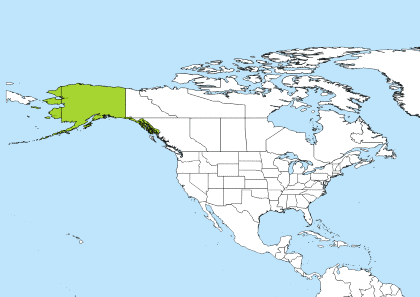AKST to PT Converter
Time Difference
Alaska Standard Time is 1 hours behind Pacific Time
12:30 am00:30 in AKST is 1:30 am01:30 in PT
AKST to PT call time
Best time for a conference call or a meeting is between 8am-5pm in AKST which corresponds to 9am-6pm in PT
12:30 am00:30 Alaska Standard Time (AKST). Offset UTC -9:00 hours
1:30 am01:30 Pacific Time (PT). Offset UTC -8:00 hours
12:30 am00:30 AKST / 1:30 am01:30 PT
| AKST | PT |
|---|---|
| 12am (midnight) | 1am |
| 1am | 2am |
| 2am | 3am |
| 3am | 4am |
| 4am | 5am |
| 5am | 6am |
| 6am | 7am |
| 7am | 8am |
| 8am | 9am |
| 9am | 10am |
| 10am | 11am |
| 11am | 12pm (noon) |
| 12pm (noon) | 1pm |
| 1pm | 2pm |
| 2pm | 3pm |
| 3pm | 4pm |
| 4pm | 5pm |
| 5pm | 6pm |
| 6pm | 7pm |
| 7pm | 8pm |
| 8pm | 9pm |
| 9pm | 10pm |
| 10pm | 11pm |
| 11pm | 12am (midnight) |
| 0:00 | 1:00 |
| 1:00 | 2:00 |
| 2:00 | 3:00 |
| 3:00 | 4:00 |
| 4:00 | 5:00 |
| 5:00 | 6:00 |
| 6:00 | 7:00 |
| 7:00 | 8:00 |
| 8:00 | 9:00 |
| 9:00 | 10:00 |
| 10:00 | 11:00 |
| 11:00 | 12:00 |
| 12:00 | 13:00 |
| 13:00 | 14:00 |
| 14:00 | 15:00 |
| 15:00 | 16:00 |
| 16:00 | 17:00 |
| 17:00 | 18:00 |
| 18:00 | 19:00 |
| 19:00 | 20:00 |
| 20:00 | 21:00 |
| 21:00 | 22:00 |
| 22:00 | 23:00 |
| 23:00 | 0:00 |
Alaska Standard Time
Offset: AKST is 9 hours behind Greenwich Mean Time (GMT) and is used in North America
Countries: It is used in following countries: United States
Principal Cities: The largest city in the AKST timezone is Anchorage from USA with population about 291,826 people. Other major cities in the area are Fairbanks, Juneau, Eagle River, Badger

Daylight Saving: This is a standard timezone, however during summer some places switch clocks for one hour forward when daylight saving comes into effect and observe Alaska Daylight Time (AKDT).
 Start: Alaska Standard Time (AKST) started on Sunday, November 3, 2024 at 2:00 am local time and clocks were set one hour back to Sunday, November 3, 2024, 1:00 am. Standard time starts annually the on first Sunday of November.
Start: Alaska Standard Time (AKST) started on Sunday, November 3, 2024 at 2:00 am local time and clocks were set one hour back to Sunday, November 3, 2024, 1:00 am. Standard time starts annually the on first Sunday of November.
 End: Alaska Standard Time (AKST) ends on Sunday, March 9, 2025 at 2:00 am local time and clocks are set one hour forward to Sunday, March 9, 2025, 3:00 am local daylight time instead. Standard time starts annually the on second Sunday of March.
End: Alaska Standard Time (AKST) ends on Sunday, March 9, 2025 at 2:00 am local time and clocks are set one hour forward to Sunday, March 9, 2025, 3:00 am local daylight time instead. Standard time starts annually the on second Sunday of March.
AKST representations, usage and related time zones
- -09 - basic short
- -0900 - basic
- -09:00 - extended
- -0900 - sign character (-) followed by a four digit time providing hours (09) and minutes (00) of the offset. Indicates nine hour and zero minutes time differences to the west of the zero meridian.
- Victor - Military abbreviation for AKST
- V - short form of 'Victor'
- America/Anchorage
- America/Juneau
- America/Metlakatla
- America/Nome
- America/Sitka
- America/Yakutat
- US/Alaska
- AKST - Alaska Standard Time
- AHDT - Alaska-Hawaii Daylight Time
- HADT - Hawaii-Aleutian Daylight Time
- GAMT - Gambier Time
- HDT - Hawaii Daylight Time
- V - Victor Time Zone
Pacific Time
Pacific Time (PT) is a general term used to describe the areas that observe either the Pacific Standard Time (PST) or Pacific Daylight Time (PDT) in the United States and Canada. PT also called Pacific Coast Time. PT is not static but switches between PDT and PST.
Territories observing the Pacific Time Zone are primarily in North America. It runs through the western part of Canada, the United States and the Northwestern part of Mexico.
Countries: It is used in following countries: Canada, Mexico, United States.
Principal Cities: The largest city in the PST timezone is Los Angeles from USA with population about 3.793 million people. Other major cities in the area are Vancouver, Tijuana, San Diego, San Jose.
French: HNP - Heure Normale du Pacifique
Spanish: PT - Tiempo del Pacífico, PT - Zona Noroeste
Pacific Time (PT) is a general term used to describe the areas that observe either the Pacific Standard Time (PST) or Pacific Daylight Time (PDT) in the United States and Canada. PT also called Pacific Coast Time. PT is not static but switches between PDT and PST.
Territories observing the Pacific Time Zone are primarily in North America. It runs through the western part of Canada, the United States and the Northwestern part of Mexico.
Countries: It is used in following countries: Canada, Mexico, United States.
Principal Cities: The largest city in the PST timezone is Los Angeles from USA with population about 3.793 million people. Other major cities in the area are Vancouver, Tijuana, San Diego, San Jose.
French: HNP - Heure Normale du Pacifique
Spanish: PT - Tiempo del Pacífico, PT - Zona Noroeste
PT representations, usage and related time zones
- -08 - basic short
- -0800 - basic
- -08:00 - extended
- -0800 - sign character (-) followed by a four digit time providing hours (08) and minutes (00) of the offset. Indicates eight hour and zero minutes time differences to the west of the zero meridian.
- Uniform - Military abbreviation for PT
- U - short form of 'Uniform'
- Pacific Time - UTC -8
- Palau Time - UTC +9
- AKDT - Alaska Daylight Time
- PST - Pacific Standard Time
- PT - Pacific Time
- PST - Pitcairn Standard Time
- U - Uniform Time Zone
